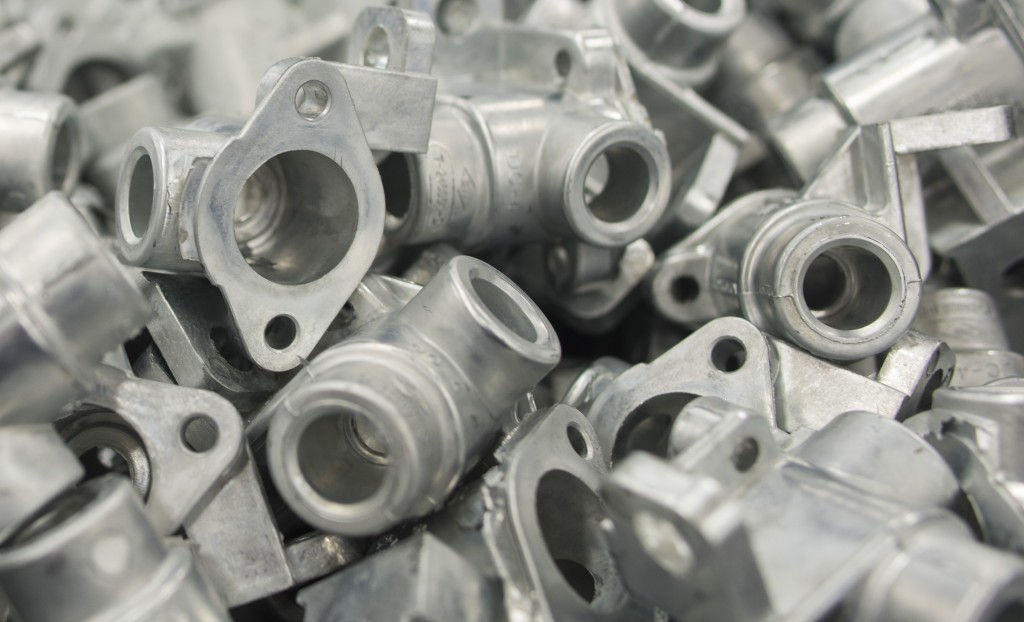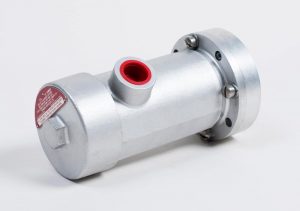Revealing the Benefits and Practical Use Aluminum Castings in Today's Market
Aluminum castings have actually come to be progressively appropriate in numerous markets due to their one-of-a-kind qualities. Their light-weight nature and resistance to corrosion make them ideal for demanding applications. In addition, the exceptional strength-to-weight proportion uses substantial advantages in design and manufacturing. As markets continue to discover their potential, the full scope of light weight aluminum spreadings' applications and advantages continues to be to be completely revealed. What exists in advance for this versatile material?
The Lightweight Benefit of Light Weight Aluminum Castings
Although several materials are made use of in manufacturing, aluminum spreadings stand out mainly due to their lightweight residential or commercial properties. This characteristic makes aluminum castings an eye-catching option for numerous sectors, especially in aerospace and automotive applications, where weight reduction is essential for improving gas effectiveness and efficiency. The light-weight nature of light weight aluminum permits manufacturers to create parts that are much easier to install and manage, inevitably decreasing labor expenses.
Furthermore, the capability to produce intricate forms without significant weight penalties allows developers to innovate while keeping architectural stability. Light weight aluminum spreadings can efficiently change much heavier products, causing significant savings in delivery and operational expenses. Their light-weight advantage also adds to boosted product long life, as lighter components usually result in lowered deterioration on machinery. Overall, the lightweight residential properties of light weight aluminum spreadings offer manufacturers with an one-upmanship, promoting innovations in item design and efficiency across various fields.

Outstanding Corrosion Resistance
Light weight aluminum spreadings possess an all-natural resistance to oxidation, which substantially improves their durability in different environments. This integral residential or commercial property not just adds to their resilience but also lines up with the light-weight benefit that aluminum supplies. Because of this, aluminum castings are significantly recognized for their outstanding corrosion resistance in many applications.

Naturally Immune to Oxidation
Among the standout features of light weight aluminum spreadings is their remarkable corrosion resistance, which originates from an all-natural oxidation process. When subjected to air, light weight aluminum reacts to create a thin, protective layer of aluminum oxide. This layer works as a barrier against more oxidation and safeguards the underlying steel from corrosive aspects such as moisture and salts. Unlike other metals, this oxide layer is self-repairing; if harmed, it quickly reforms when subjected to air. This unique property boosts the longevity of light weight aluminum castings in different atmospheres, making them suitable for applications in sectors such as aerospace, automotive, and marine. The all-natural resistance to oxidation greatly minimizes upkeep prices and raises the dependability of light weight aluminum castings in requiring conditions.
Light-weight Longevity Benefit
The lightweight nature of light weight aluminum castings adds greatly to their durability, making them a beneficial selection in numerous markets. This remarkable resilience is greatly associated to light weight aluminum's innate resistance to corrosion, which is enhanced better via anodizing and various other surface area treatments. Unlike several steels, aluminum does not corrosion; instead, it develops a protective oxide layer that shields it from ecological damages. This residential or commercial property is particularly valuable in industries such as automobile and aerospace, where weight decrease is critical without jeopardizing strength. Additionally, the durability of light weight aluminum castings reduces maintenance costs and substitutes, offering economic advantages in time. Subsequently, their lightweight sturdiness and corrosion resistance setting aluminum spreadings as an exceptional material for modern manufacturing applications.
Superior Strength-to-Weight Ratio
An exceptional feature of light weight aluminum castings is their premium strength-to-weight proportion, that makes them highly desirable in different applications. This inherent home allows light weight aluminum castings to hold up against significant stress and anxiety while remaining lightweight, an essential factor in markets such as aerospace, automobile, and manufacturing. Designers frequently like light weight aluminum castings for components that require both toughness and lowered weight, boosting fuel effectiveness and performance.
The high strength-to-weight proportion also helps with the style of intricate forms and structures, making light weight aluminum spreadings flexible for complex applications. Additionally, the ability to maintain architectural honesty under difficult conditions guarantees long life and dependability in items, from airplane frameworks to vehicle parts. This advantage adds to the growing trend of making use of light weight aluminum castings in innovative styles, eventually causing boosted capability and efficiency throughout varied markets. The superior strength-to-weight ratio of light weight aluminum castings places them as a pivotal material in modern engineering and manufacturing.
Cost-Effectiveness in Manufacturing
Cost-effectiveness in aluminum spreading production is mostly accomplished via reduced material waste and effective production procedures. By maximizing designs and making use of sophisticated strategies, suppliers can reduce excess material usage while preserving quality criteria. This strategy not just lowers production costs yet additionally adds to a lot more lasting methods within the market.
Decreased Product Waste
Lowering product waste in light weight aluminum spreading procedures considerably boosts production performance. By optimizing the design and manufacturing methods, companies can reduce excess scrap and improve source application. This decrease in waste not just decreases material costs however likewise adds to a much more lasting manufacturing model. The capacity to recycle aluminum further assistances cost-effectiveness, permitting manufacturers to reclaim and recycle materials without compromising top quality. As the sector increasingly concentrates on sustainability, decreased material waste aligns with ecological goals while simultaneously improving earnings. Inevitably, effective use resources enhances the competitive position of companies in the marketplace, making light weight aluminum castings a desirable choice in different applications. The tactical technique to decreasing waste reflects a commitment to both environmental and economic obligation.
Efficient Manufacturing Processes
While typical manufacturing processes can incur significant expenses, aluminum casting provides a more effective option that boosts general production profitability. This approach decreases product waste and permits for precise control over the production procedure, leading to decreased labor and operational prices. The capacity to produce intricate forms with less actions additionally simplifies manufacturing, adding to much shorter preparations. Additionally, light weight aluminum's light-weight nature and superb thermal conductivity permit energy cost savings during production and in the final application. By making use of modern casting innovations, makers can attain higher throughput without giving up high quality. Aluminum casting stands out as an economical service, making it an attractive choice for services intending to optimize their manufacturing processes in today's affordable market.
Adaptability Across Industries
Aluminum castings demonstrate exceptional flexibility across different industries, as they can be tailored to meet certain needs and applications. In the automobile industry, aluminum castings are made use of in engine blocks, transmission housings, and wheels, offering light-weight yet durable remedies that enhance fuel performance. The aerospace industry likewise gains from aluminum spreadings, using them in structural elements and engine components as a result of their strength-to-weight proportion.
In the customer products market, makers employ light weight aluminum castings for items varying from cookware to furniture, providing both aesthetic appeal and performance. The electronics industry makes use of aluminum spreadings for housings and warm sinks, making sure efficient thermal administration. Additionally, the building market leverages aluminum spreadings for building elements and architectural elements, enhancing resilience and design flexibility. This broad applicability highlights aluminum castings as a necessary source, meeting the diverse requirements of different markets while maintaining high efficiency and dependability.
Sustainability and Ecological Effect
As sectors progressively prioritize lasting techniques, aluminum spreadings become a green selection due to their recyclability and low ecological impact. Aluminum is just one of the most recycled materials worldwide, with the capacity to be repurposed numerous times without deterioration look at these guys of quality. This characteristic significantly minimizes the need for resources and energy consumption connected with key light weight aluminum production, which is energy-intensive.
Additionally, light weight aluminum castings add to lightweight styles, bring about sustain performance in transport applications such as aerospace and automobile markets. Their toughness and resistance to rust extend product life-spans, better reducing waste and resource use over time. Furthermore, several producers are taking on accountable sourcing and environmentally friendly production techniques, improving the sustainability of aluminum casting procedures. In general, aluminum spreadings stand for a useful option for businesses intending to reduce their ecological read the article effect while attaining performance and effectiveness.
Innovations in Light Weight Aluminum Casting Technologies
Recent advancements in light weight aluminum spreading technologies have greatly enhanced the performance and quality of production processes. Developments such as 3D printing and advanced mold-making techniques have actually allowed suppliers to produce detailed layouts with lowered product waste. This change not just improves the accuracy of cast parts however likewise reduces preparations, enabling for quick prototyping and faster market entry.
The unification of sophisticated computer simulations help in predicting potential issues throughout casting, leading to higher-quality review outputs. The usage of light-weight alloys has actually likewise contributed to the development of more powerful, much more long lasting products, satisfying sectors ranging from vehicle to aerospace
Furthermore, automated casting procedures have emerged, decreasing human error and enhancing manufacturing rate. Collectively, these technologies are transforming the light weight aluminum casting landscape, driving higher competitiveness and sustainability in manufacturing. As sectors continue to advance, these innovations will certainly play an essential duty in meeting future demands for efficiency and top quality.
Regularly Asked Concerns
Just How Do Light Weight Aluminum Castings Contrast to Various Other Metals in Regards To Thermal Conductivity?
Light weight aluminum castings exhibit exceptional thermal conductivity contrasted to many steels, such as steel and iron - Aluminum Foundry. Their lightweight nature and reliable heat circulation make them perfect for applications needing efficient thermal management in numerous industries
What Are the Usual Issues Located in Light Weight Aluminum Castings?
Usual issues in aluminum spreadings consist of porosity, contraction, incorporations, and surface abnormalities. These issues commonly emerge from improper cooling rates, poor mold layout, or contaminations, influencing the general quality and efficiency of the end product.
Can Light Weight Aluminum Castings Be Recycled, and How?
Light weight aluminum spreadings can be reused properly. The procedure entails collecting, melting, and changing the aluminum, which minimizes waste and saves resources. This recycling adds to sustainability while keeping the product's buildings for future usage.
What Are the Regular Lead Times for Light Weight Aluminum Casting Manufacturing?
Usually, lead times for light weight aluminum casting manufacturing variety from 2 to six weeks, relying on variables such as intricacy, tooling demands, and production quantity. Efficiency can improve with recognized distributor relationships and optimized production procedures.
Just how Does the Surface End Up Affect Aluminum Spreading Efficiency?
The surface area finish significantly impacts light weight aluminum casting efficiency by influencing corrosion resistance, aesthetic high quality, and friction features. A smoother surface boosts toughness and capability, while a rougher texture can improve attachment for succeeding coatings or therapies.
Several products are utilized in production, aluminum spreadings stand out mostly due to their lightweight buildings. When subjected to air, light weight aluminum responds to create a thin, safety layer of aluminum oxide. Cost-effectiveness in aluminum spreading production is largely accomplished with reduced material waste and efficient production procedures. Lowering material waste in light weight aluminum spreading procedures greatly enhances manufacturing performance. Ultimately, reliable usage of raw products enhances the affordable position of companies in the market, making aluminum castings a positive option in various applications.